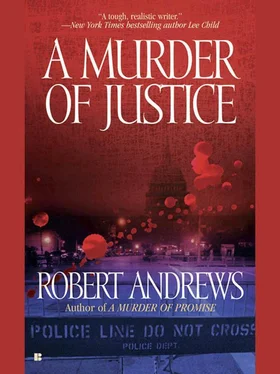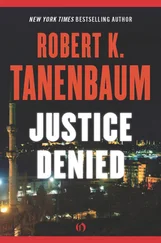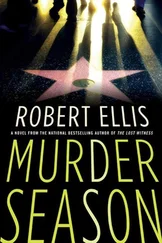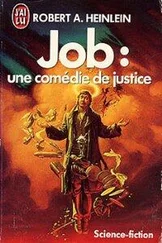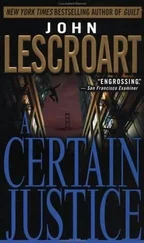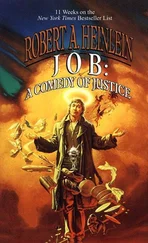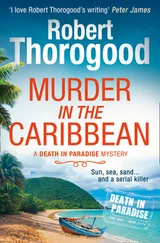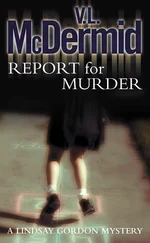Robert Andrews - A Murder of Justice
Здесь есть возможность читать онлайн «Robert Andrews - A Murder of Justice» весь текст электронной книги совершенно бесплатно (целиком полную версию без сокращений). В некоторых случаях можно слушать аудио, скачать через торрент в формате fb2 и присутствует краткое содержание. Жанр: Полицейский детектив, на английском языке. Описание произведения, (предисловие) а так же отзывы посетителей доступны на портале библиотеки ЛибКат.
- Название:A Murder of Justice
- Автор:
- Жанр:
- Год:неизвестен
- ISBN:нет данных
- Рейтинг книги:3 / 5. Голосов: 1
-
Избранное:Добавить в избранное
- Отзывы:
-
Ваша оценка:
- 60
- 1
- 2
- 3
- 4
- 5
A Murder of Justice: краткое содержание, описание и аннотация
Предлагаем к чтению аннотацию, описание, краткое содержание или предисловие (зависит от того, что написал сам автор книги «A Murder of Justice»). Если вы не нашли необходимую информацию о книге — напишите в комментариях, мы постараемся отыскать её.
A Murder of Justice — читать онлайн бесплатно полную книгу (весь текст) целиком
Ниже представлен текст книги, разбитый по страницам. Система сохранения места последней прочитанной страницы, позволяет с удобством читать онлайн бесплатно книгу «A Murder of Justice», без необходимости каждый раз заново искать на чём Вы остановились. Поставьте закладку, и сможете в любой момент перейти на страницу, на которой закончили чтение.
Интервал:
Закладка:
“Out there feelin’ bulletproof,” Jose said.
“Absolutely bulletproof.”
Jose tried to picture the killer, but Teasdale’s living room came on instead.
Teasdale in his button-up sweater sits in his Barcalounger. TV reflections flicker across the big man’s broad face.
Somewhere off in the distance, he heard Frank. “And he’ll talk,” Frank was saying.
Bedtime. Teasdale fires the remote at the TV. The tube dies.
“He’ll talk…”
Teasdale gets up. He checks the locks. The curtains are closed. But Teasdale pulls them tighter anyway.
“… absolutely have to talk…” Frank batted his empty mug between his hands. Back and forth over the countertop. “… get credit for the score… big man… capping Skeeter Hodges…”
Jose caught his own image in the mirror opposite the counter. “What kind of life is that?” he asked himself quietly.
Frank closed his hands, capturing the sliding mug. “What?”
“Oh,” Jose said, “thinking about… how we have to live.” He stood and reached for his wallet. “How much we owe?” he asked Adair.
Frank shot him a puzzled look. “You forget,” he said, “it’s my turn.”
THREE
T rumpets… church bells… ghostly voices… a Morricone score out of an old Clint Eastwood spaghetti western.
In semidarkness, a crouching figure holds the pistol in a two-handed combat grip, aiming it into even darker shadows. A lightning flash. Skeeter Hodges sits in the Huey Newton wicker chair.
Motionless as a manikin, he sits… waiting.
Blood erupts. Skeeter’s head explodes.
In slow motion, the shooter turns.
The bells and the voices surge.
And the figure faces him. And a lone trumpet searches his soul. The pistol finds his eyes. And the bore of the muzzle reaches out and engulfs him, and he stares into the darkness at the end of the world.
The trumpets… the bells… the voices… pound in a hellish apocalyptic crescendo…
Frank opened his eyes as the first jet of the morning from Reagan National screamed overhead, clawing its way north above the Potomac.
He lay twisted in the sheets. Motionless, he stared at the ceiling. His pulse beat furiously in his throat. The jet engines faded and his pulse slowed and the dream fragments drifted away.
He rolled over and shut his eyes, but his legs had cramped during the night, and his lungs felt musty, like a room that’d been shut too long. He sat up and swung his feet to the floor. He yawned, stretched, and looked around the bedroom, eyes coming to rest on the two windows overlooking the courtyard garden at the back of the house. Blue sky framed a sun-dappled oak. Plaster walls and heart-pine floors glowed from sunlight coming down the hallway from the front of the house.
Sixteen years before, when he’d bought the dilapidated row house on Olive Street, all the windows had been painted shut. A contractor had wanted to install thermopaned windows. The more Frank thought about it, the less he’d liked it. Old houses had old windows. So he’d learned how to disassemble the original windows, strip layers of paint, replace pulleys and sash cords, and he’d put everything back together so it worked as it had when the house had been new and Grover Cleveland had been president.
It was warm enough to run in shorts and T-shirt, and ten minutes later, he was striding at an easy pace down M Street. He crossed Key Bridge, ran along Teddy Roosevelt Island, then down the riverside path to Memorial Bridge. Once across the bridge, he circled the Lincoln Memorial, then picked up speed for a hard run up the Potomac and back into Georgetown.
Despite the exertion, the dream kept replaying. Skeeter’s head… the pistol… Skeeter just sitting there… a captive actor in a deadly play… the shot.
He finished the run winded, sweaty, and nagged by a rasping sensation that something somewhere somehow had gone very badly wrong.
A half-hour later, showered, shaved, and standing at the kitchen counter, he sipped coffee and scanned the Post. Skeeter’s killing ranked front page above the fold, complete with photos. Bad-boy rating about eight or nine on a scale of ten, Frank figured, reading between the lines. A follower of the flamboyant Juan Brooks. Inherited the business when Juan got life in max security at Marion, Illinois. Then the obligatory boilerplate editorial equation: Young boys plus inner-city poverty plus guns equals crime.
He felt a brushing against his trouser leg and looked down.
“Hello,” he said to Monty.
The big gray cat sat with the steely expression of a drill sergeant. Cats had always intrigued him-how they watched people in the curious but detached way people watched parades. But until Monty, Frank hadn’t thought of himself as a cat person.
Frank tapped the newspaper. “Les Miserables,” he explained.
Monty wasn’t interested.
Monty had literally dropped into Frank’s life. Frank had been laying a patio in his courtyard one Saturday. He’d been on his knees, tapping a brick into place, when a very thin kitten landed in the impatiens by the wall. Frank was startled, and assumed the animal had jumped or fallen from an overhanging branch of his neighbor’s tree. Showing no fear, the kitten approached Frank and sat just out of reach. For an hour, it watched him work. When he went into the kitchen for a beer, the kitten followed.
The cat didn’t beg. It just sat, staring, beaming a telepathic command. Frank obediently opened a can of tuna.
The cat made himself at home. He had no collar. Frank put an ad in the lost and found. He watched for lost-cat flyers taped to Georgetown lampposts. The first week, he hoped an owner would show. The next week, he was afraid one might. One never did, and Monty took over as master of the small row house on Olive Street.
Food!
Frank saluted. “Right away, sir.” In the years with Monty, he’d come to the conclusion that if cats could talk to humans… they wouldn’t.
Monty had accumulated a variety of bowls from Kate, Jose, and a loose coalition of neighbors Frank had come to think of as “the Olive Street Gang.” From a cabinet, he picked out a bowl featuring a Delft-blue cat with a crown.
“This okay?”
Move it, move it.
Frank filled the bowl with dry food and put it down near Monty’s swinging door that led into the garden. Monty sniffed at the offering, then grudgingly tried a bite. Soon the food was disappearing, swept up by a furry vacuum cleaner. As he finished his coffee, Frank watched the big cat eat. Then, after stuffing the newspaper into a canvas briefcase, he went through the ritual of setting the alarm system and locking up the house.
On his front steps, Frank glanced up and down the street, taking a second or two to recall where he’d had to park the night before. He found his car on Thirtieth Street and said a silent thank-you prayer for no new dings and the still-intact side-view mirrors.
WGMS was playing the 1812 Overture. It was too early in the day for booming cannons, so Frank switched to WOL and Joe Madison. Concentrating on the Pennsylvania Avenue traffic, he paid little attention until he realized that Madison was talking about Skeeter Hodges. He turned up the volume.
Madison was refereeing a bare-knuckle brawl between Oliver North and Sarah Brady. North, the former Marine, was arguing against gun control, while Brady, the gun control activist, was arguing for. The two counterpunched with the now familiar prefabricated sound bites-Second Amendment rights, Founding Fathers’ intent, the definition of an organized militia.
All the old answers. Any new questions?
Madison cut in.
“We got a call from a listener, Mrs. Frances Morrow. Mrs. Morrow, you’re on.”
“Mis-tuh Madison-” An assertive chocolate-brown voice. Frank tugged at a memory, then gave up.
Читать дальшеИнтервал:
Закладка:
Похожие книги на «A Murder of Justice»
Представляем Вашему вниманию похожие книги на «A Murder of Justice» списком для выбора. Мы отобрали схожую по названию и смыслу литературу в надежде предоставить читателям больше вариантов отыскать новые, интересные, ещё непрочитанные произведения.
Обсуждение, отзывы о книге «A Murder of Justice» и просто собственные мнения читателей. Оставьте ваши комментарии, напишите, что Вы думаете о произведении, его смысле или главных героях. Укажите что конкретно понравилось, а что нет, и почему Вы так считаете.
